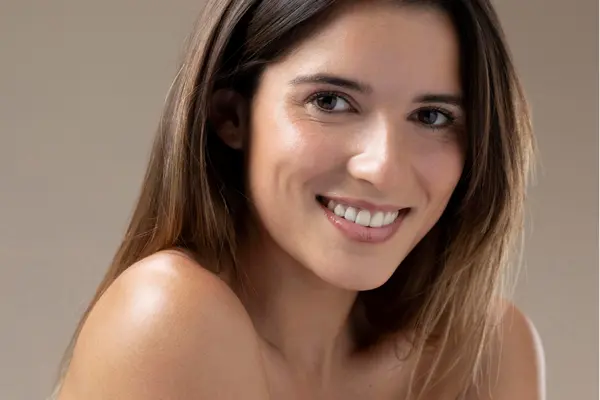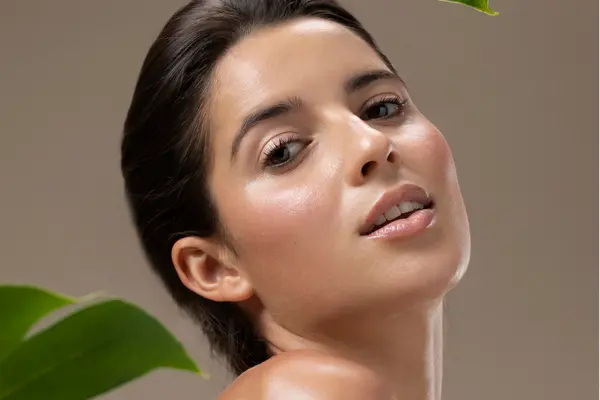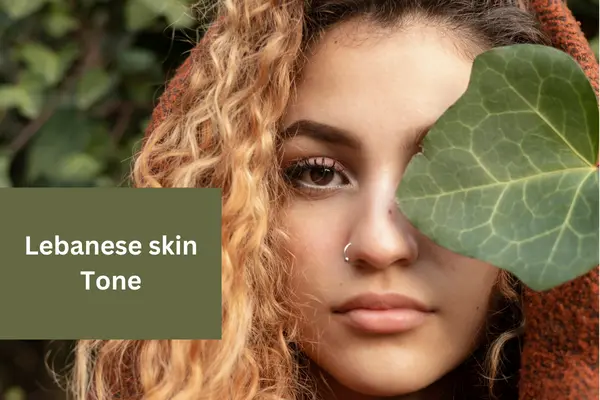Lebanese beauty is as diverse as the nation’s history and geographic landscape, reflecting layers of cultural influences. With a unique blend of Middle Eastern and Mediterranean heritage, Lebanese skin tones stand out for their radiant warmth and versatility. The post is a gateway to understanding and celebrating Lebanese skin tones, whether you are a member of this vibrant community or a makeup artist.
In this comprehensive guide, we’ll define Lebanese skin tone, discuss its unique properties, and outline the perfect skincare and makeup routines to enhance its natural beauty.
Table of Contents
ToggleWhat are Lebanese Skin Tones?
Lebanese skin tones encompass a range of shades from fair to medium. People with Lebanese heritage are often characterized by dark hair and brown eyes, which are the most common features. This beautiful amalgamation of tones is a result of Lebanon’s geographic location and its history as a melting pot of various cultures.
Types of Lebanese Skin Under Tones
Understanding the undertones of Lebanese skin is essential for a precise color match in makeup and clothing. Lebanese skin often falls into the warm category, although some individuals may have neutral or cool undertones. Here’s how to distinguish between them:
1. Warm
If your veins appear more green than blue, and gold jewelry looks more flattering than silver, you likely have warm undertones. Your skin might also have yellow or peach hues that become more apparent in the sunlight.
2. Cool
Cool undertones are characterized by blue or pink-red veins and a ruddy complexion that might burn easily in the sun. Silver jewelry enhances the coolness of your skin, and colors like blue, maroon, and certain shades of pink can complement your undertones.
3. Neutral
Individuals with neutral undertones often find that they can wear a mix of warm and cool shades without clashing. Their veins may appear a mix of green and blue, and they can usually pull off both silver and gold jewelry.
The Most Common Features in Lebanese Skin Tones

1. Black hair
Deep, luscious locks are the hallmark of Lebanese beauty, giving its wearer an air of mystery and power. They often have different shades of dark brown or black, which can be especially striking when complemented with the right makeup and outfit.
2. Brown eyes
Brown eyes are the predominant eye color in the Lebanese community, adding depth and integrity to one’s gaze. The warmth and earthiness of the eyes make for a great palette for makeup and emphasize an important focal point of the face.
3. Medium olive skin
Lebanese skin often falls within the olive-medium spectrum, with golden undertones that provide the base for a wide range of makeup and beauty products. It’s a versatile skin tone that allows for an array of styles from bold to soft and classic to contemporary.
Skincare Routine for Lebanese Skin Tones
Understanding your skin type and tone is the first step in developing an effective skincare routine. For Lebanese skin tones, it’s all about maintaining that natural radiance.
- Cleanser: Use a gentle cleanser twice a day to keep the skin clean. Avoid bar soaps that can be harsh on the skin.
- Toner: A non-alcohol based toner can help to balance the skin’s pH levels and add a layer of moisture.
- Moisturizer: Look for moisturizers with ingredients like hyaluronic acid, which keeps the skin hydrated without making it feel too oily.
- Sun Protection: A broad-spectrum SPF is non-negotiable for all skin tones but especially for olive skin, which can be prone to hyperpigmentation. Look for SPF 30 or higher to protect against UVA and UVB rays.
- Exfoliate: Consider using an exfoliating mask or gentle scrub to remove dead skin cells, but don’t go overboard with it. Over-exfoliation can result in sensitivity and pigmentation issues.
- Serums: Serums with ingredients like Vitamin C can help even out any hyperpigmentation and brighten the skin.
Lebanese skin tones often lean towards the combination of oily skin types, so selecting non-comedogenic products that won’t clog pores is key. Remember, your skin is as unique as you are, so it is crucial to tailor your skincare routine to meet your specific needs.
Makeup Tips for Lebanese Skin Tones

Makeup is a form of self-expression that can enhance the natural beauty of Lebanese skin tones. When applied thoughtfully, it can bring forward innate features and create a polished look that celebrates individuality.
- Foundation: When selecting a foundation, take the time to find a perfect match for your skin’s undertone. Lebanese skin commonly features golden or neutral undertones, so avoid foundations that are too pink or too ashy. Buff the foundation into your skin for a seamless look.
- Contour and Highlight: Contouring can add dimension and structure to your face. Opt for a contour shade that’s a few shades darker than your skin tone, and apply it to the hollows of your cheeks, along the jawline, and the sides of your nose. Highlight the high points of your face with a luminous product to catch the light beautifully.
- Eye Makeup: Play with a range of eyeshadow colors, from earthy neutrals to jewel-toned shadows that complement brown eyes. To accentuate the eyes, don’t shy away from bold eyeliner or flirty lashes.
- Cheek Color: A peach or rosy blush can add a touch of youthfulness to the olive complexion. Smile to find the apples of your cheeks, then apply the blush in a soft, circular motion.
- Lipstick: Lebanese skin can rock just about any lip color, but rich berries, warm reds, and deep nudes are particularly complementary. Choose a lipstick formula — matte, satin, or gloss — that suits your style and the occasion.
Actors with Lebanese Skin Tones
Lebanon has been the birthplace of some incredibly talented individuals who have graced the global stage. Their skin tones and features have become their trademark and have inspired many around the world.

- Salma Hayek: The renowned actress has beautifully exhibited her Lebanese heritage with her striking features and incredible talent.
- Mia Khalifa: Though controversial, Mia Khalifa’s representation of her Lebanese skin tone has made a mark in the entertainment industry and beyond.
- Nadine Njeim: The actress and beauty queen has been a source of inspiration for her skin tone and success.
Conclusion
Appreciating and understanding Lebanese skin tones is an enriching experience that allows a deeper connection to the beauty within diversity. By tailoring skincare routines and makeup tips, those with this unique skin tone can truly harness their beauty. Remember, beauty comes in all shades, and it’s our differences that make us stand out in a world filled with unique colors.

